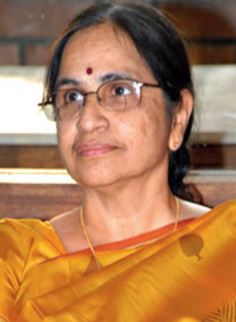
Political Stories by Volga

Political Stories-4
shut up!
shut up! Shut Up!As the words kept ringing in her head, Janaki covered her ears with her hands. The words weren’t new to her, she had been hearing them for years. Someone or the other had been telling her to shut up for as long as she could remember. As a child, everything that she had seen or that had happened around her made her wildly happy or angry-or pained her. She would run to her mother or father to tell them what she was feeling. As she spoke excitedly, they would scold her, “Shut up and get lost! Where do you find all this nonsense?” It wasn’t just her mother and father. Her grandfather, grandmother, atta, pinni, maamayya, baabaayi were all the same. “Why do you keep babbling?” they would ask. “A girl shouldn’t have such a big mouth,” atta would say. “How big her mouth is!”
She looked in the mirror and found only a small m red lips. Why did atta call this a big mouth? Why die always threaten to scar such a pretty mouth? Why she girls have mouths? Her brothers would always roam the village, coming ho just in time to eat and sleep. They would talk and she joyfully when they were out playing in the streets. They made so much noise as they jumped into the canal to swim! One day Janaki found the tub in the backyard filled to the brim with water. She stood on its rim and jumped in with a loud scream. The water splattered and spilled out, and in her uncontrollable happiness Janaki let out a few more shrieks, squealing so loudly that the vessels in her neck swelled. Suddenly her father and grandmother appeared. With intolerance etched on his face, her father lifted her out of the tub and threw her out. Looking at her naked body, he said in disgust, “Have you no shame?” and then went away. This was the same father who would take her brothers to the canal for baths and laugh until his sides hurt as they stripped naked and jumped into the canal to swim! Of course he would not take her to the canal, but why shouldn’t she dive into the tub at least! And why should she be dressed while doing it? Janaki raised this question with her grandmother for which she got slapped on the back and yelled at: “Shut up, you shameless creature!” As she grew older, Janaki realized that though words come out of the mouth, they really start in the head. That was why she laughed out loud when her atta said, “We should have your mouth stitched up.” “Don’t you know? Words are born here,” she tapped on her head, “They just come out of the mouth, that’s all.” Janaki explained. “You’re getting worse by the day,” atta said and struck her hard on her back. Though slow to learn, Janaki eventually figured out that when words sprout in her head, she shouldn’t let them come easily out of her mouth. Some shouldn’t be allowed to come out at all. Leave the words alone, she said to herself. The elders don’t understand my words and they get angry. Maybe my words bring out anger in them just as their words make me cry. But what about laughter? What is wrong with laughing? Why should anybody be bothered by my laughing? Why should they get angry? Janaki was quick to laugh as if laughter resided on her lips. So many wonderful things inside the house and out! Fantastic things! She couldn’t help laughing at them. How could she stop? But she wasn’t allowed to laugh even when such funny things happened right in front of her! If she laughed, they would hit her, and it would hurt. And wouldn’t she cry if it hurt? But then, she was not allowed to cry! Janaki was amazed at the elders who beat children so hard that they were badly hurt and then demanded that the children not cry. One day, as her father was beating her brother and rebuking him for crying, Janaki asked her father, “Will he cry if you don’t hit him?”
Her father’s anger was now directed at her: “I will hit you too if you don’t shut up! You and your stupid questions God gave you nothing but a big mouth.” Yes, God gives a mouth. One uses it to talk, to laugh and to cry. But why do my folks ask me not to do any of that, Janaki wondered? If these things are so bad, why should God give me a mouth at all? Janaki’s little brain couldn’t handle big questions like these, but she didn’t dwell on anything for too long, and easily distracted herself with something else. However, Janaki gradually did learn quite a few strange things. First of all she understood that it was only the little kids that the elders asked to shut up. Even among kids, most often it was the girls who were to remain silent. As she grew up, it became evident that men told even grown women to shut up. Her father would often ask her mother, as well as his own mother, to shut up. Janaki learned that women should speak with other women in muffled voices, but keep their mouths shut when men were around. But then, she also found out an even stranger thing. Both her mother and father —well, not just them, everyone in the family, including the children — asked Enkati to shut up though he was older than all of them. Many times, even Janaki felt like asking him to shut up. But Enkati would tell Janaki about many interesting things. He explained to her the meanings of calf calls, what the birds gathered on the guava tree chattered about, how the clouds rushed along carrying water in their stomachs to fill pots at home, and how sometimes the clouds didn’t make it home and their water leaked out as rain. Janaki listened to his stories with her mouth agape, forgetting that she wanted to tell him to shut up and not talk nonsense. But strangely, when she told her mother or father the same things that Enkati told her, they summarily asked her to shut up! With all this, it became clear to Janaki that the poor, the lower castes and the women were the ones who were always told to shut up. From then on Janaki made a conscious effort to talk as little as possible. At home and at school, she learned to do her work without saying a word. Everybody praised her. Janaki did not realize that the efforts she made in silencing the words emerging from her head would gradually stifle their very formation. She was pleased that remaining silent would gradually calm the tension within her, but failed to grasp that her imagination would be blunted. When she was a child, she could not help telling everyone around her the plight of withered branches or fallen flowers that she had seen. But eventually , Janaki reached the pitiful stage of being unable to say a word even when she was face to face with human suffering. All she could do now was cry in silence. The girl who had jumped in joy watching birds chirp or young calves leap learned to silently smile at even the most exciting festivities. Janaki was now married. Her husband was handsome and had a good job. Janaki was quite pleased. But it didn’t take long for this joy to give way to fear.
“Why do you stand there like a dumb woman? Why don’s you talk?” her husband used to ask, annoyed at her silence It irritated him that Janaki would not respond to his words and would quietly go on doing whatever he asked her to do. By the time she understood that her husband wanted to hear her talk and listen to her gossip, her battered cheeks were swollen. She began to speak again. It used to be so easy to express every feeling in words, but not anymore Now she had to struggle for the right words. It was a struggle in the head, in the throat, on the tongue and lips but Janaki did not give up in spite of the setbacks and weariness of her task. It was like a baby learning to walk, falling but relentlessly getting up again. Janaki began to speak and her husband was pleased. When she asked him what he wanted, inquired about his likes and dislikes, and promised to do things that pleased him, he was, indeed, happy. He was thrilled when she looked at him approvingly or said words of appreciation for his accomplishments. But then, she did not stop there. She wasn’t a parrot after all. His annoyance returned when she questioned or discussed other things. His initial reaction was to listen to her with knitted eyebrows, but his impatience grew as she talked more and more. One day he exploded. “Shut up! Such a big mouth never did any good for a woman. You are a woman. Shut up and behave like one.”
The day he said that, Janaki laughed like a mad woman. She laughed till her eyes watered. She laughed till she could not stand anymore and rolled on her bed. “Why are you laughing so loudly? Are you a woman or what?” he screamed. She could not contain herself. The laughter did not stop until it turned into a sob. “Shut up! Shut up!” The words ring in Janaki’s ears, even when her ears are closed. The words have settled in her head now. They are in her blood.
Andhrajyothy weekly, June 8, 1990.
*****
(To be Continued-)

ఓల్గా గా ప్రసిద్ధి పొందిన పోపూరి లలిత కుమారి ప్రముఖ తెలుగు రచయిత్రి. ఆంధ్రప్రదేశ్లోని రాజకీయ, సాహిత్యరంగపు చర్చలో స్త్రీవాద ధృక్పధాన్ని ప్రవేశపెట్టిన రచయితగా ఈమెను గుర్తిస్తారు స్త్రీవాద ఉద్యమానికి ప్రతీకగా నిలిచిన ఓల్గా, తనను తాను తెలుగులో గురజాడ అప్పారావు వ్రాసిన కన్యాశుల్కంతో ప్రారంభమైన అభ్యుదయ రచనా పరంపరలో భాగంగా కూడా భావించింది. నవంబర్ 27, 1950లో గుంటూరు జిల్లా చుండూరు మండలం యడ్లపల్లి గ్రామములో జన్మించారు. వీరి తల్లిదండ్రులు పోపూరి వెంకటసుబ్బారావు, వెంకటసుబ్బమ్మ. ఈమె ఆంధ్ర విశ్వవిద్యాలయంలో తెలుగు సాహిత్యం ఎం.ఎ. చేసిన తర్వాత తెనాలిలోని వి.ఎస్.ఆర్. కళాశాలలో తెలుగు అధ్యాపకురాలిగా పనిచేశారు. ఓల్గా కథలు, నవలలు, పద్యాలు మహిళా సాహిత్యములో ఎన్నదగినవి. చలం, కొడవటిగంటి కుటుంబరావు రచనల వల్ల ప్రభావితమై స్త్రీ చైతన్యము అంశముగా రచనలు చేసి తనకై ఒక ప్రత్యేక స్థానము సంపాదించింది. పత్రికలలో, సాహిత్యములో, అనువాదములలో మహిళా హక్కులపై వివాదాస్పద చర్చలు గావించింది. చలన చిత్ర రంగములో ‘ఉషా కిరణ్’ సంస్థకు కథా రచయిత్రిగా పనిచేసి మూడు చిత్రాలు నిర్మించి పురస్కారాలు పొందింది. ఈమె రాసిన స్వేచ్ఛ నవలని వివిధ భారతీయ భాషల్లోకి అనువదించడానికి నేషనల్ బుక్ ట్రస్టు స్వీకరించింది.1986 నుండి 1995 వరకు ఆమె ఉషా కిరణ్ మూవీస్ లో సీనియర్ కార్యవర్గ సభ్యురాలిగా పనిచేసారు. 1991 నుండి 1997 వరకు అస్మిత రిసోర్స్ సెంటర్ ఫర్ విమెన్ కు అధ్యక్షురాలిగా పనిచేసారు. ఆమె ప్రస్తుతం అస్మితలో జనరల్ సెక్రటరీగా పనిచేస్తున్నారు.
